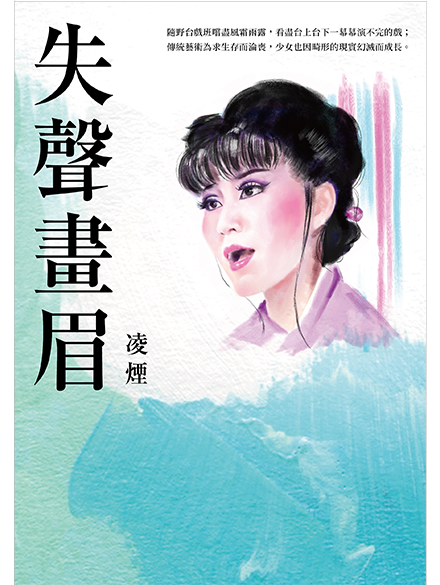Against her parents’ wishes, she had left home to pursue her dream of joining a Taiwanese opera troupe. Traveling the length and breadth of the island with her troupe, she came face to face with a torrent of articulated passions and sexual conventions far from the mainstream.
Traditional Taiwanese opera first emerged around the turn of the twentieth century in Yilan, on Taiwan’s northeast coast. Framed around popular songs sung during temple festivals, stylistic elements from other artforms were gradually absorbed, resulting in the lively and colorful performances still enjoyed today. Taiwanese opera programming on television, introduced in the 1970s, cemented this genre in the popular imagination. The Silent Thrush is set during the height of Taiwanese opera’s televised popularity, when live stage performances were in palpable decline.
As a young girl, Mu-Yun loved watching Taiwanese opera performances in front of their local temple. Despite her parents’ protestations, she joins an opera troupe after high school graduation, making her debut in bit parts. However, regularly televised Taiwanese opera programming, with their lavish sets and lineup of famous actors, and newfangled “spicy girl” live shows were chilling public enthusiasm for live Taiwanese opera. To rekindle sponsor and audience interest, troupes turn to staging lively, often risqué dance shows immediately after performances. Although Mu-Yun takes to singing pop songs in a tight-fitting cheongsam, she wonders whether she has betrayed her dreams.
In this mostly female troupe, subplots abound involving a betrayed mistress of the troupe’s boss, young actresses caught in love triangles, an older actress who chooses to help her younger boyfriend settle his gambling debts, and the cruel bullying of an unmarried male actor by his mates. The author brings to life the tangled web of emotions and passions coloring this oft-vilified corner of society. The portrayal in this work of emotional entanglements and sexual desire, especially among women, made it a pioneer in the lesbian literature genre after its first release in 1990. It was also the first Taiwanese work in this genre to earn a major literary award.
Becoming the Thrush, published by Chuang in 2008, continues the troupe’s story through the 1990s, catching readers up on its never-ending feuds, loves, and scandals. This work was a finalist in the 2008 Taiwan Literature Awards.
